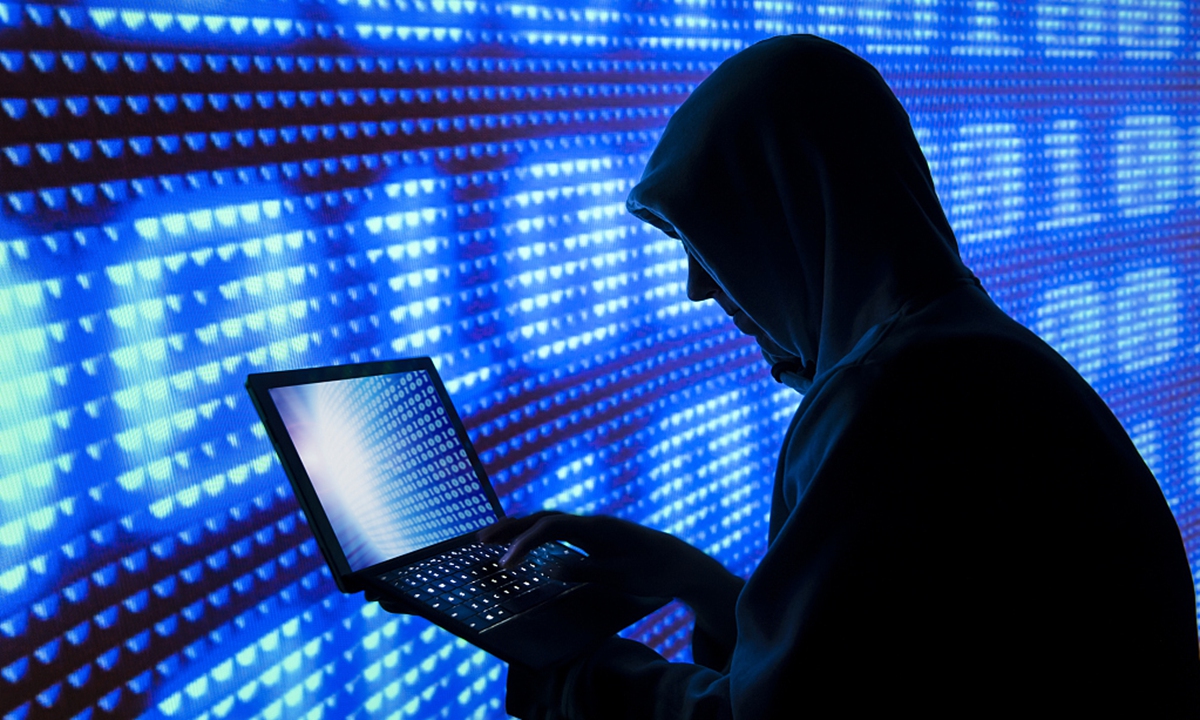
cyber attack Photo: CFP
In light of recent unfounded allegations made by the US claiming Chinese hacking of its Treasury Department office or workstations, some Chinese experts suggest that such behavior reflects the unwillingness of certain US departments and individuals to foster China-US cooperation in the cyber domain, preferring instead to turn it into a domain of competition or even confrontation.
An article published by the Washington Post on Wednesday claimed that "Chinese government hackers breached a highly sensitive office in the Treasury Department that administers economic sanctions against countries and groups of individuals - one of the most potent tools possessed by the United States to achieve national security aims."
In the article, an anonymous source said that the targeting of the Office of Foreign Assets Control (OFAC) as well as the Office of the Treasury Secretary reflects Beijing's determination to acquire intelligence on its most significant rival in the global competition for power and influence.
Such allegation came shortly following the Treasury claimed that Chinese state-sponsored hackers breached the US Treasury Department's computer security guardrails this month and stole documents in what Treasury called a "major incident," Reuters reported on Monday.
The Chinese embassy spokesperson Liu Pengyu urged that "the US needs to stop using cyber security to smear and slander China, and stop spreading all kinds of disinformation about the so-called Chinese hacking threats," according to BBC on Tuesday.
Responding to questions concerning the previous US Treasury Department allegations, Chinese Foreign Ministry spokesperson Mao Ning said on Tuesday that "on this kind of unwarranted and groundless allegations, we've made clear our position more than once. China opposes all forms of hacking, and in particular, we oppose spreading China-related disinformation motivated by political agenda."
BBC in its relevant report on Tuesday pointed out that "the US has not supplied any evidence that China is responsible for the hack."
The Aljazeera on Wednesday pointed out that the alleged hacking comes weeks after Beijing accused Washington of carrying out two cyberattacks on Chinese technology firms.
The Aljazeera report also said that the US department did not "specify the number of workstations compromised, the nature of the files, the exact timeframe of the hack and the confidentiality level of the stations compromised."
These recent reports, which remain unverified by evidence, appear to be politically motivated in nature, suggesting an effort to justify potential US cyberattack escalation against China, Li Haidong, a professor at China Foreign Affairs University, told the Global Times on Thursday.
Such behavior reflects the unwillingness of certain US departments and individuals to foster China-US cooperation in the cyber domain, preferring instead to turn it into a domain of competition or even confrontation. This approach is clearly unhealthy and sick, he criticized.
In December 2024, the Chinese National Computer Network Emergency Response Technical Team/Coordination Center of China (CNCERT) revealed that it had identified and handled two incidents of US cyberattacks targeting major Chinese tech company and institution to steal commercial secrets.
Previously, the US has repeatedly made groundless accusations about so-called China-backed cyberattacks, aiming to smear China.
On April 15 and July 8, 2024, the National Computer Virus Emergency Response Center, National Engineering Laboratory for Computer Virus Prevention Technology and 360 Digital Security Group jointly released two
investigation reports disclosing the US government's narrative regarding Volt Typhoon, which it claimed is cluster of activity of interest associated with a "China state-sponsored cyber actor," is purely a fabrication crafted by the US.
China's National Computer Virus Emergency Response Center released its third report on Volt Typhoon in October 2024, once again exposing cyber espionage and disinformation operations conducted by US government agencies, including a US cyber weapon that can mislead investigation and frame other countries for its own cyber espionage activities.
The US has a long history of using disinformation against its perceived competitors or enemies, often fabricating stories and lies. The dark side of certain individuals related to US government's China policy has once again been exposed, Li said.




